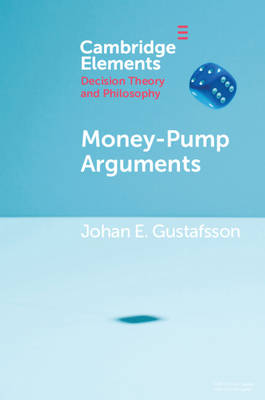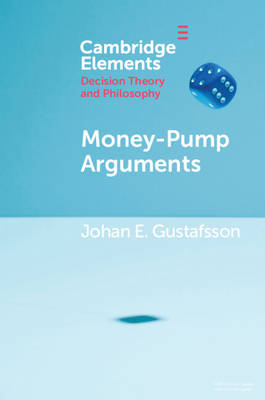
- Afhalen na 1 uur in een winkel met voorraad
- Gratis thuislevering in België vanaf € 30
- Ruim aanbod met 7 miljoen producten
- Afhalen na 1 uur in een winkel met voorraad
- Gratis thuislevering in België vanaf € 30
- Ruim aanbod met 7 miljoen producten
Zoeken
Omschrijving
Suppose that you prefer A to B, B to C, and C to A. Your preferences violate Expected Utility Theory by being cyclic. Money-pump arguments offer a way to show that such violations are irrational. Suppose that you start with A. Then you should be willing to trade A for C and then C for B. But then, once you have B, you are offered a trade back to A for a small cost. Since you prefer A to B, you pay the small sum to trade from B to A. But now you have been turned into a money pump. You are back to the alternative you started with but with less money. This Element shows how each of the axioms of Expected Utility Theory can be defended by money-pump arguments of this kind. This title is also available as Open Access on Cambridge Core.
Specificaties
Betrokkenen
- Auteur(s):
- Uitgeverij:
Inhoud
- Aantal bladzijden:
- 102
- Taal:
- Engels
- Reeks:
Eigenschappen
- Productcode (EAN):
- 9781108718950
- Verschijningsdatum:
- 13/10/2022
- Uitvoering:
- Paperback
- Formaat:
- Trade paperback (VS)
- Afmetingen:
- 152 mm x 229 mm
- Gewicht:
- 145 g

Alleen bij Standaard Boekhandel
+ 66 punten op je klantenkaart van Standaard Boekhandel
Beoordelingen
We publiceren alleen reviews die voldoen aan de voorwaarden voor reviews. Bekijk onze voorwaarden voor reviews.







